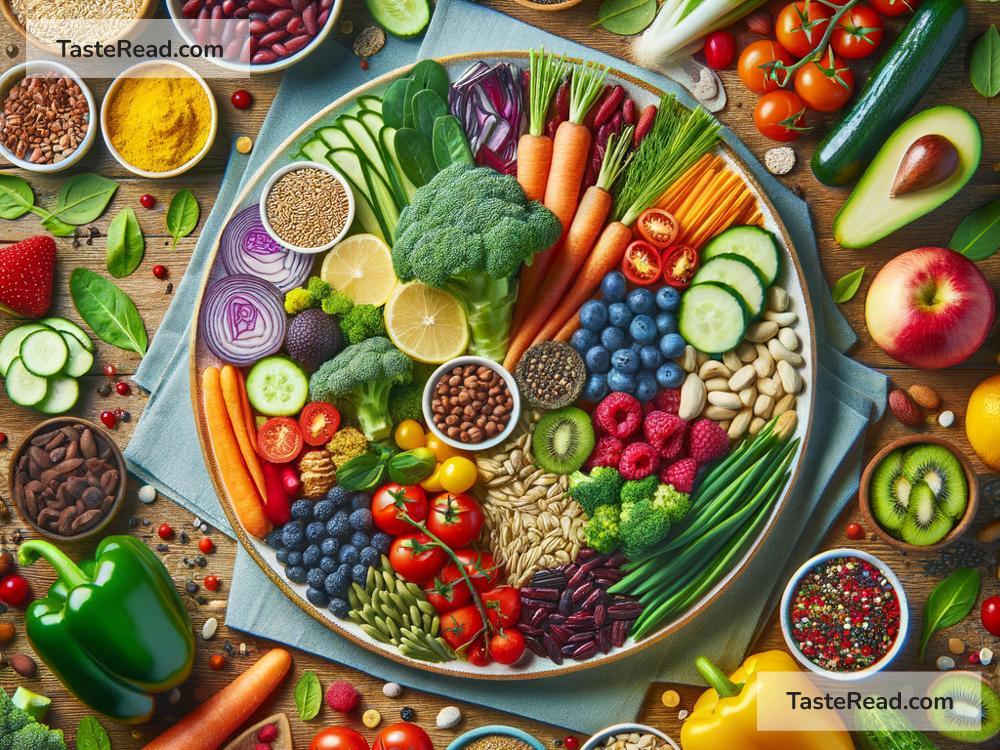Understanding the Importance of Nutrient Variety
When we think about eating healthy, many of us picture leafy greens, fresh fruits, and maybe a plate of whole grains. While these are definitely great foods, eating healthy isn’t just about choosing “good” foods—it’s about eating a variety of foods. Variety helps ensure your body gets all the nutrients it needs to stay strong, energized, and healthy. In this article, we’ll talk about why nutrient variety is important, how different foods play different roles, and simple ways to add more variety to your diet.
What Are Nutrients, and Why Are They Important?
First, let’s talk about what nutrients are. Nutrients are substances in foods that your body needs to function properly. They can be divided into two main categories: macronutrients and micronutrients.
- Macronutrients are nutrients your body needs in large amounts. These include carbohydrates, proteins, and fats. They give you energy and help with growth, repair, and general health.
- Micronutrients are nutrients your body needs in smaller amounts but are just as essential. These include vitamins and minerals, which help maintain your body’s systems, support your immune health, and allow various chemical processes to happen.
Both macronutrients and micronutrients are crucial, and eating a variety of foods ensures that your body gets everything it needs. No single food contains all the nutrients your body requires, so mixing things up is key.
Why Is Variety So Important?
Imagine your body like a large team working together. Different nutrients act like team members, each with their own job. Some nutrients help build strong bones, others keep your heart beating, and some protect your eyesight. If you’re missing certain nutrients, it’s like part of your team is absent—you can still function, but not as well as you could.
Here are some big reasons why nutrient variety matters:
-
Balanced Health: Each nutrient performs a specific function. For example, calcium strengthens your bones, while vitamin C supports your immune system. Only eating one type of food would mean missing out on certain nutrients, and your body might face deficiencies.
-
Better Digestion: Eating a mix of foods gives your body fiber, enzymes, and other helpful nutrients that support digestion. Fiber, found in fruits, vegetables, and whole grains, acts like a broom that helps sweep waste through your digestive system.
-
Disease Prevention: A nutrient-rich diet can protect you from diseases. Antioxidants from brightly colored fruits and vegetables (like berries, spinach, and carrots) fight free radicals, which are harmful molecules that can cause damage inside your body.
-
Energy and Mood: Certain nutrients, such as B vitamins and magnesium, boost your energy and mood. A varied diet helps you avoid feeling sluggish or fatigued.
-
Keeps Meals Exciting: Let’s face it—eating the same thing every day can get boring. Variety not only benefits your health but also keeps mealtime fun and enjoyable.
What Happens When You Lack Nutrient Variety?
If your diet is limited to just a few types of food, your body could struggle over time. For example:
- If you don’t eat enough fruits and vegetables, you may miss out on vitamins like C and A, leading to weaker immunity and vision problems.
- Skipping protein-rich foods can result in muscle loss and tiredness.
- Ignoring healthy fats, like those in nuts and avocados, can affect your brain and heart health.
Over time, nutrient deficiencies can cause serious health problems like anemia, weak bones, or chronic fatigue. That’s why it’s important to eat a range of foods.
How to Add More Variety to Your Diet
Adding variety doesn’t have to be difficult! It also doesn’t mean you need to overhaul your whole diet at once. Here are some simple tips to mix things up:
-
Try New Fruits and Vegetables: Each fruit and vegetable offers something different. For instance, oranges are rich in vitamin C, while spinach is loaded with iron. Experiment with new produce, and focus on eating a rainbow of colors.
-
Switch Up Your Grains: Instead of eating the same rice or bread every day, try quinoa, barley, or whole-grain pasta. These options contain nutrients like fiber and protein.
-
Include Protein from Different Sources: Don’t limit your protein to just one food like chicken. Include beans, eggs, fish, tofu, and nuts. Each has a unique mix of nutrients.
-
Cook with Different Spices: Spices like turmeric, garlic, and ginger not only add flavor but also provide health benefits.
-
Explore Global Cuisines: Food from around the world often uses different ingredients. Trying dishes from places like India, Mexico, or Thailand can introduce you to new flavors and nutrient combinations.
-
Snack Smarter: Instead of eating chips or candy as snacks, try trail mix, yogurt with berries, or veggie sticks with hummus.
-
Plan Balanced Meals: Make sure each meal includes a mix of carbs, protein, healthy fats, and vegetables. For example, pair grilled salmon with a side of quinoa and roasted broccoli.
Final Thoughts
Eating a wide variety of foods is one of the simplest ways to take care of your body. By including different colors, textures, and flavors in your meals, you ensure that your body gets the fuel it needs to run its best. Plus, variety keeps your meals exciting and enjoyable.
So, next time you’re at the grocery store, think beyond your usual options. Challenge yourself to try something new and nourish your body with a colorful, nutrient-packed selection of foods. Your health (and taste buds) will thank you!


